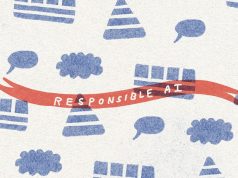
While $2 million dollar Super Bowl ads were busy aping today’s topsy-turvy work environment, inviting job seekers who are tired of “working with monkeys” to seek a brighter future on CareerBuilder.com, a small Pioneer Square start-up by the name of Jobster was quietly planning a more strategic launch. Using $10.5 million, not for advertising, but in first-round seed money, Jobster was going to work on redefining “hire intelligence,” readying a wholly different brand of job-search network and without any monkey business.
Forget jobs boards or classified advertising blasts. Think social networks like Friendster or 43things.com. The fledgling company is all about networking jobs among targeted media and individuals — a recruitment “folksonomy” based on combining know-how with know-who. Does it work? Twenty-three pilot companies are betting the answer is yes. And each of Jobster’s 36 employees was recruited using the very same “qualified referral” method hard-wired into Jobster’s Web-based, ASP-delivered business model. “We eat our own dogfood,” proclaims founder Jason Goldberg, “We practice what we preach.”
As Chief Jobster, Goldberg is remarkably laid back for someone who spent several years in proximity to the oval office inside of the White House, working for president Bill Clinton’s Chief of Staff, Erskine Bowles. “Erskine had a saying,” relates Jason, “if you want to find a good person, talk to a good person.” Translated into Jobster, that means “Good people know good people who know good people.” It’s not about data, it’s not about resumes, it’s about who’s good.
After graduating Emory University in Atlanta in 1991 and serving just steps away from a president, Goldberg’s career path traversed Stanford Business School, and then AOL’s broadband division. He arrived in the Northwest to head up the Wi-Fi Hot Spot service for Bellevue’s T-Mobile.
Seattle24x7 caught up with the networking missionary who is out to change the way jobs get filled and Web companies get grown in the new Internet economy.
Seattle24x7: What’s the biggest problem with hiring personnel today that Jobster seeks to solve?
Goldberg: Recruitment advertising started out as classified advertising and now it’s become online classified ads and large job boards. All it really finds you is resumes, it doesn’t really find you people. In many ways, the whole notion of leveraging a trusted relationship has been forgotten in the rush to bring everything online and get more bodies. What I call it is the whole quality vs. high quantity. If you’re looking for high quality, talk to people.
Seattle24x7: How have you put this principle to work in your own career?
Goldberg: When I was building a team at T-Mobile, I needed to hire eight people. I laid out the skills to my recruiters and asked ‘how do I find these people?'” The reply I got back was that we’ll do what we always do. We’ll put the job on the major job boards and we’ll sit back and wait. I’m not exactly a sit back and wait kind of guy, but I said, all right, let’s do that.
Two weeks later, the recruiter came back to me and said Jason, I’ve got great news. We’ve got 5,000 responses to your eight job listings. Here’s a pile of resumes that I’ve weeded out that you may want to look through. As I looked through these three hundred resumes, I thought to myself, this is just data, it’s not people. Maybe I’ll find one gem in this pile. But what I really need is to find out who can tell me who is a good pricing analyst, or who can tell me who would be a good person to go and do a deal with Microsoft, or who could help me analyze this type of problem. You don’t find that in random resumes — what I might call “junk resumes or resume spam.”
Seattle24x7: How were you able to solve your staffing problem?
Goldberg: What I did is started reaching out to people that I knew and asking, Do you know someone who might be good for this position? A number of people I’d worked with at The White House and people I’d gone to business school with at Stanford, and people I’d worked with at AOL and I ended up hiring people really quickly, and every one came from a qualified referral.
I stepped back after this process and I realized that our company was spending over a million dollars a year on recruitment advertising and yet what I did was completely different from that process. What finally got me to quit my job and start building this solution is that I went out and talked to more than a hundred people. What I heard back is, first, you’re onto something, secondly, it’s big, and most importantly, hurry up and build something like this because I want to use it!
That’s all we’re doing here is that we’re building a service to help solve that problem that I went through myself and to enable companies to do it on a very large- scale basis.
Seattle24x7: How does the Jobster system work and who is your “customer”?
Goldberg: Our target audience are the recruiters in large organizations. They use our browser-based .ASP Internet service similar to a Job Board but in a much more targeted way. A way that builds knowledge about relationships. The analogy to make is that in a Job Board, you advertise your jobs to millions of people. On Jobster, you take your jobs and you target them to the people who can help you find good people.
The people who can do that are both your employees and also, what’s often forgotton about in employee referral programs, people outside your company.
Seattle24x7: It’s more than just dropping a name, or friend-get-a-friend?
Goldberg: Most employee referral programs stop at the company’s walls. It’s a sign on the elevator or in the break room that says, “Do you know someone good? Send them our way.” There’s no knowledge or learning involved in that. You don’t really get an understanding of who knows the university professor out there who knows RF engineers, or who is the person who is at another company in a marketing position who knows good marketers in your regional area.
What our technology allows companies to do is to mobilize a variety of recruiters where the hiring managers aren’t alone in the process, but also the people they know outside the company. It enables them to have a very clean and easy way to let their friends and their friends know about good opportunities and ultimately help them in getting a leg up on getting noticed for the position.
Seattle24x7: Do you see a correlation between job advertising and Internet advertising in general?
Goldberg: An analogy would be to search advertising. If you think about online advertising five years ago it was all about banner ads. Banner ads were all about eyeballs. Over the last five years we’ve had a shift from banner ads to more targeted, more relevant modeling — AdWords. Google is a $3 billion industry right now. Instead of just advertising beer in a banner ad, why don’t you just advertise beer whenever someone is searching for beer? This is what Yahoo and MSN are doing. The entire online advertising industry is shifting towards a more targeted and relevant model. Online recruiting is still in the eyeballs model. Online recruiting is still putting jobs on a jobs board and you hope to get as many eyeballs as you can to get as many resumes as you can to find a needle in a haystack. What we’re trying to do is get more targeted. Instead of advertising your jobs to the world, just hone in on the right people to see the right jobs at the right time.
Seattle24x7: As a genuine Web 2.0 company, how would you characterize the differences between being an early-stage venture backed company today and a bubble company in the boom-and-bust era?
Goldberg: At AOL, I saw hundreds of really bad business models. I saw some that got 3,4, 5 times the funding, maybe 10 times the funding that I have here today. It’s a whole new world. It’s a better and smarter world. We received our first round of funding, $2.5 million from Ignition Partners and the only reason we got that funding was that we had signed up an advisory committee with the heads of recruiting at 15 companies. Each one of them said, I want you to build this for us.
We had a great team, we had a keen sense of the business and the concept, but if we didn’t have those customers primed for the product, we wouldn’t have gotten funded. When we went out and raised $8M this past December, it was the same story again. I walked into the VC’s offices and said, Look. I’m not trying to sell you a big future. I’m telling you here and now.
With opportunity comes responsibility. We have a responsibility every single day for our customers and our investors and our employees. That responsibility is to grow a company in a responsible way to make sure we are 100% committed to customer delight and to make sure that every employee who works here goes through the Jobster experience saying I was treated well every step of the way, [24×7]
Larry Sivitz is the Managing Editor of Seattle24x7.


















